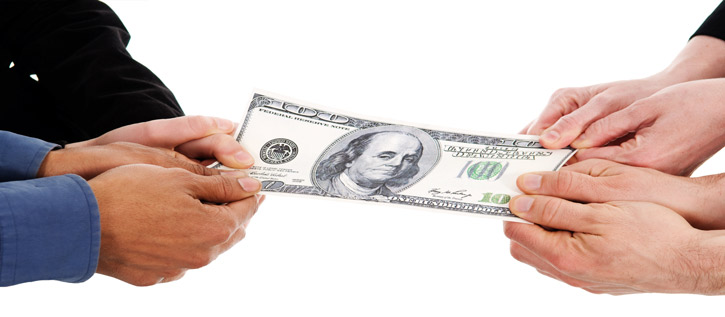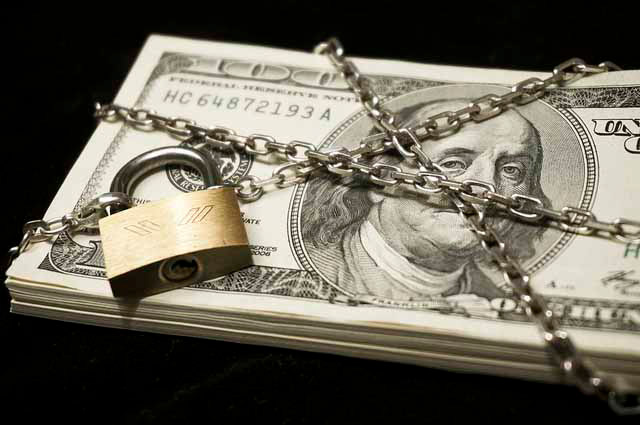When the time comes to settle your personal injury claim, you may be surprised to find out there are parties who have a right to, or liens on, your personal injury compensation. It’s important for you to know what portion of the settlement goes to you, what goes to the lawyers and what goes to any lienholders that may have claims on your settlement.
What are liens?
A lien is a legal claim on your property that guarantees payment of a debt or amount owed to someone else. There are different types of liens: consensual, statutory, and judicial.
A good example of a consensual, or voluntary lien is when you are buying a car. You take out a loan to purchase a car. You sign documents with the bank, and the bank pays the money to the car dealership. You drive away with the car, but the bank holds a lien on it. If you don’t keep up on your repayments to the bank, they will repossess the vehicle. Once you repay the loan in full, the bank releases the lien and you become the full owner of the car.
The car in the example is the collateral – the property that guarantees the loan. The lien is the agreement you made with the bank, or the obligation itself.
An example of a statutory lien is an IRS tax lien. If you don’t pay your taxes, the Internal Revenue Service has the right to place a lien on your property until you fulfill your obligation, or pay the tax amount.
Judgment liens are typically placed on the property of the defendant, or at-fault party in a personal injury case. For instance, if the defendant’s insurance doesn’t cover the amount the judge awarded to you, a judicial lien may be placed against the defendant’s property to secure payment to you.
As a personal injury law firm, TorkLaw represents the plaintiff, or the injured party. As such, the type of lien we deal with most often is a settlement lien.
What are settlement liens?
While you are injured, you receive medical care. Your doctors, hospitals and physical therapists may need to be paid – or, your healthcare insurer pays them. In addition, you may receive payments in the form of short-or long-term disability benefits while you are unable to work.
If another party should bear financial responsibility for your injuries, all these entities — the healthcare providers, the insurance companies, and the government office that paid your disability benefits — can make a claim against your personal injury settlement to be repaid. This is known as subrogation.
Subrogation is a legal term that describes another party’s right to stand in your place to collect money from an injury claim.
If you handle your personal injury claims on your own, you may not even be aware that there are other parties with a claim on your settlement. But they know who you are, and they will assert their legal right to that money.
What is a lienholder?
Anyone with a legitimate claim on your settlement is known as a lienholder. In personal injury claims, these can include:
- Health care providers, hospitals, or clinics
- Medicare and Medicaid
- Veterans Administration
- Workers’ Compensation insurance
- Your health insurance company
Your car insurance company - Spousal and/or child support agencies

Am I required to pay these lienholders?
By law, you do have to pay your lienholders – and although it doesn’t seem so, it is fair.
The subrogation process prevents what is known as “double-dipping.”
When you bring a claim against the person who is at fault for your injuries, you are seeking to be repaid for damages like medical bills, property damage, etc. If your health insurance provider paid your bills, and then you are paid money for those bills by the at-fault party, you have been paid twice. You would be “double-dipping” if you kept those settlement funds.
Technically, the funds received in recovery for your medical bills belongs to the insurance company that paid them — unless your policy contains a “waiver of subrogation” clause. In that case, you would be entitled to keep that money.
How a personal injury attorney can help
If you handle your case on your own, you may find your settlement proceeds eaten up in liens. This is why it is in your best interest to consider a personal injury lawyer.
First, your attorney’s goal is to recover as much money as possible, from every source possible. Attorneys typically negotiate for much higher settlements than an ordinary person, untrained in the law, could obtain on their own. Your attorney may also discover sources of income that you didn’t even know about.
Then, your legal team will keep track of the various parties who have claimed a lien against your settlement. At TorkLaw, we have lien negotiation experts whose sole purpose is to work with those claimants to reduce the amount they’re willing to accept. Quite often, claimants are willing to receive less than the full amount they’re owed, so there is more money for you.
If you win the case, the money the defendant must pay, is sent to your law firm. They will collect the percentage you agreed to pay them, pay off any liens, and send the final amount to you.
The final payment is usually much more than you would have received on your own, even after legal fees and liens. And when you receive that final check, you can rest assured that it’s yours — free and clear.
If you are injured in a car accident, motorcycle accident or any accident that was not your fault, you should be able to focus on your recovery. That’s why you should contact TorkLaw. We can save you immeasurable stress and hassle by dealing with the insurance companies, medical providers, the at-fault party, and anyone else who wants a piece of your settlement. We will ensure that you fulfill all legal obligations, and still receive the money you need to put the pieces of your life back together.
For more information on personal injury cases, read our book for free online: Accidents Happen: A Consumer’s Guide to the Personal Injury and Wrongful Death System. Or, call us today: 888.845.9696.
Featured photo: https://www.flickr.com/photos/pictures-of-money/16678600174





